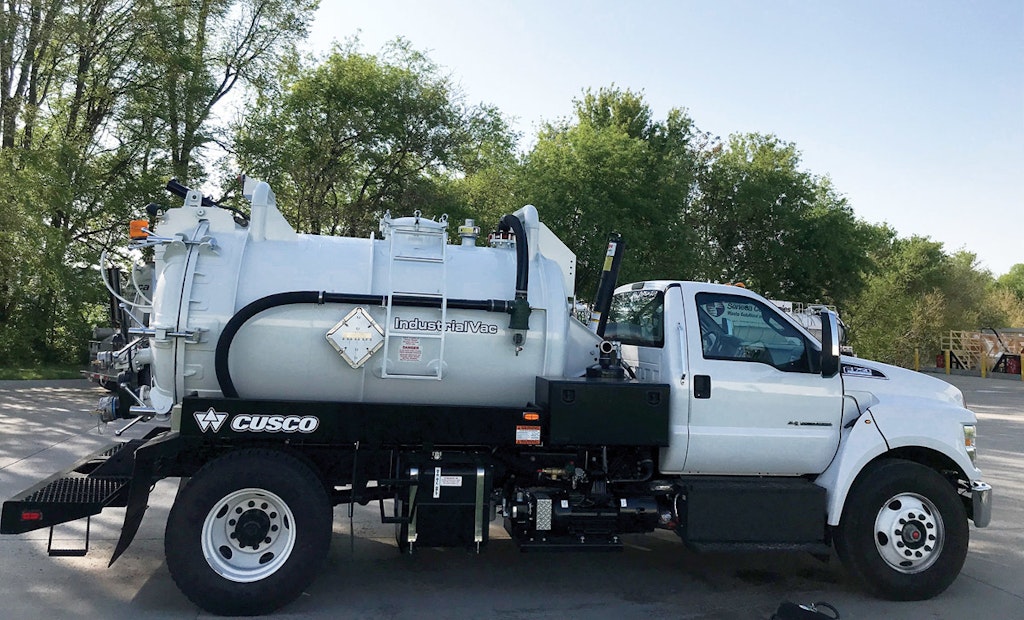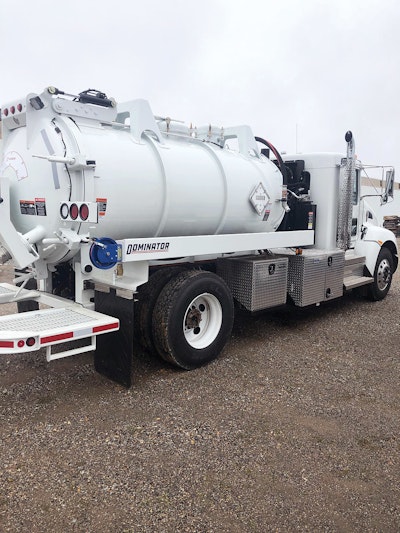
Waste Solution Services commissioned several smaller vac trucks to work inside plants and factories where maneuverability is crucial. The Cusco-built trucks feature a Ford F-750 chassis; a 1,400-gallon stainless steel debris tank; a 100-gallon water tank; an air-cooled PM80 vacuum pump made by Moro USA; and a hydraulic pressure washer.
Chris Biellier calls his small, custom-made vacuum trucks “mini-vacs.”
But while they’re small in stature compared to a conventional vac truck, they nonetheless provide a big boost in areas that matter a lot to Biellier, the vice president of the environmental and waste...






